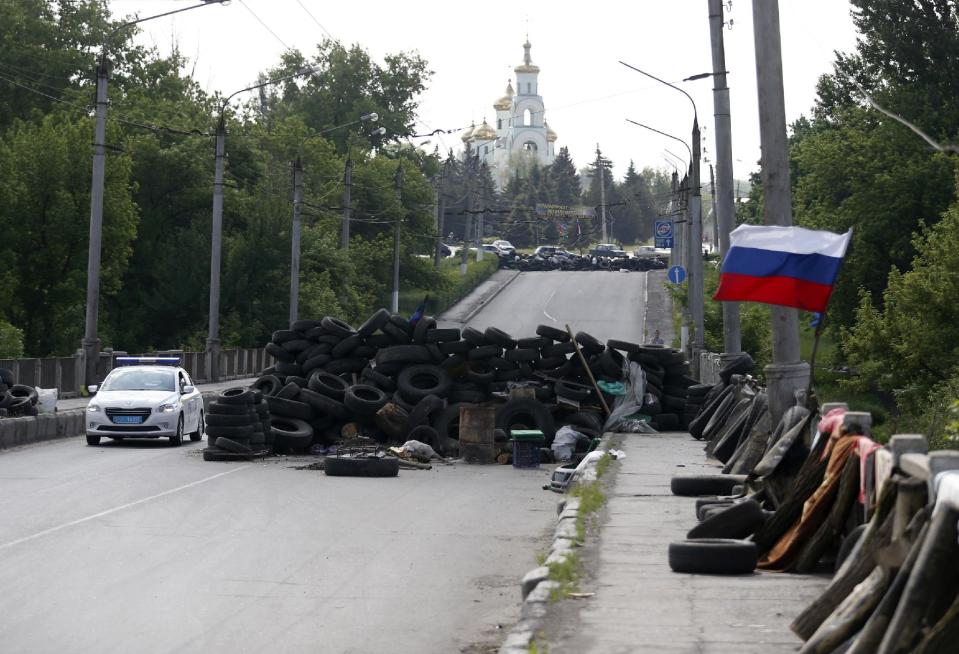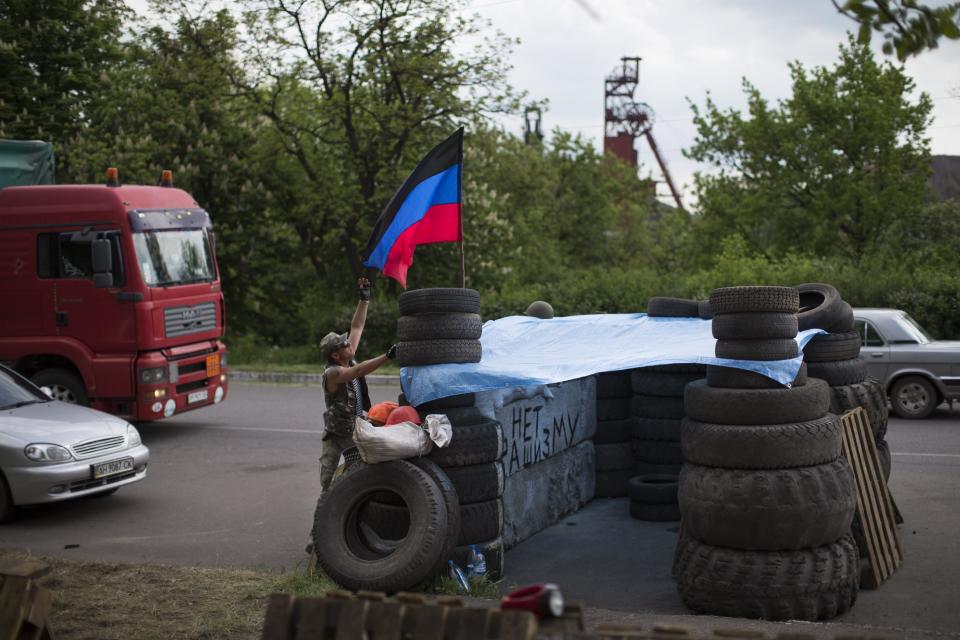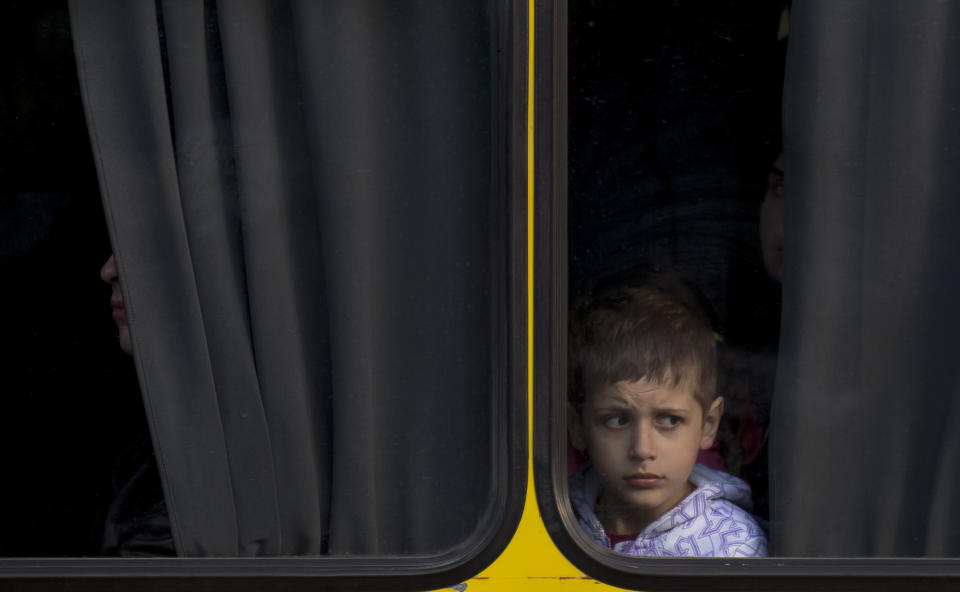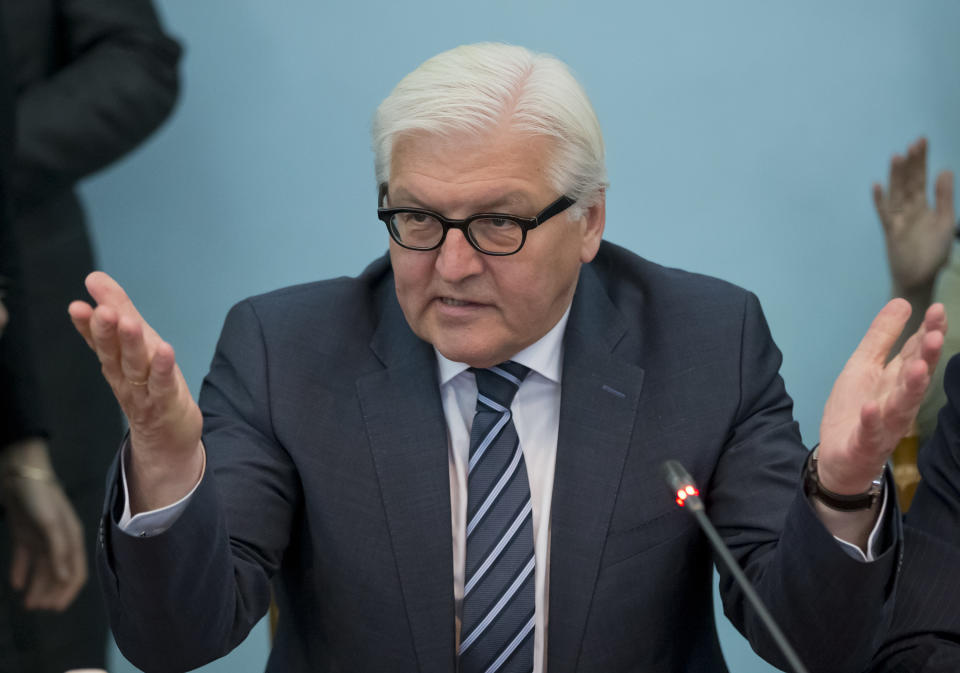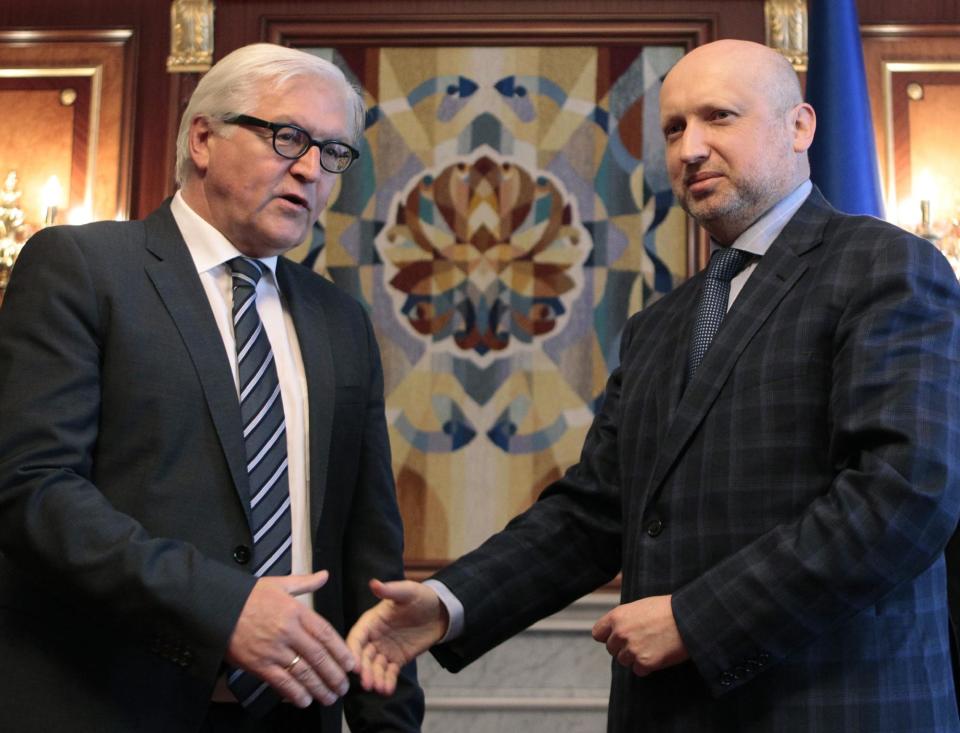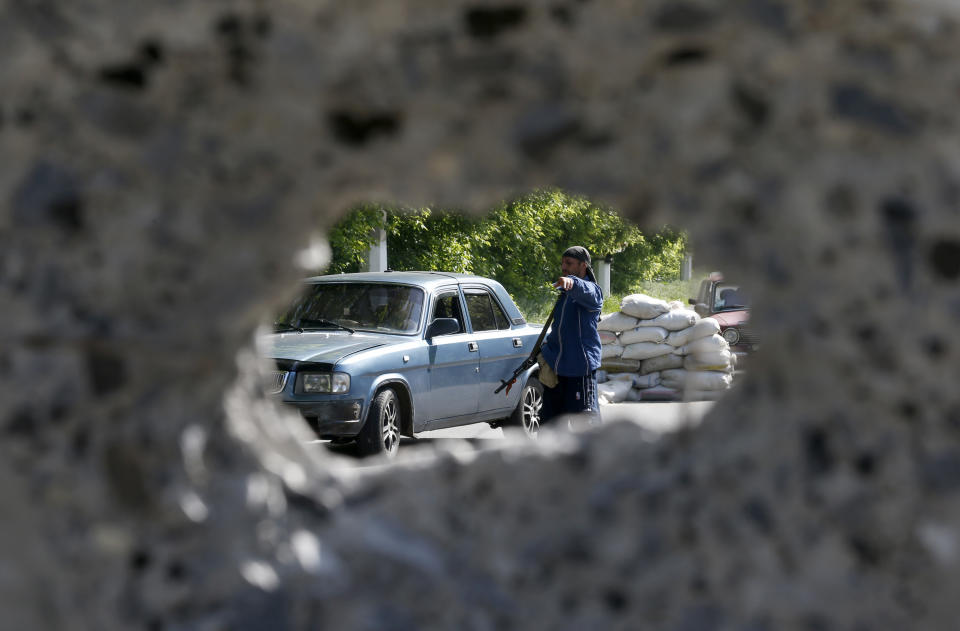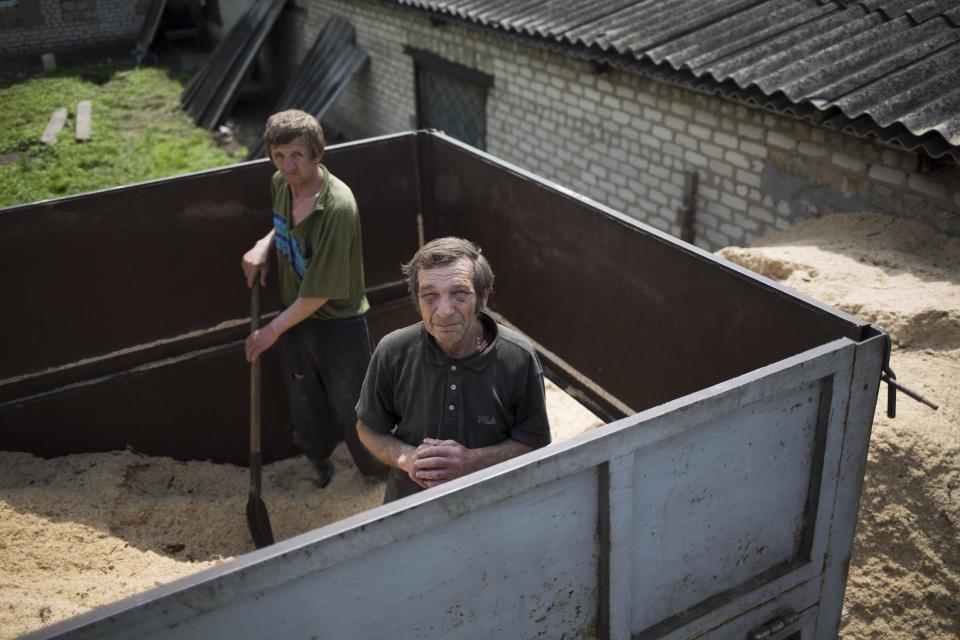Ukraine set to launch dialogue under OSCE plan
KIEV, Ukraine (AP) — A reluctant Ukrainian government agreed to launch discussions Wednesday on giving more powers to the regions under a peace plan brokered by the Organization for Security and Cooperation in Europe, but it remains wary of engaging with pro-Russian insurgents who have declared independence in two eastern regions.
Ukraine's prime minister, Arseniy Yatsenyuk, was to chair the first in a series of round tables set to include national lawmakers, government figures and regional officials in line with proposals drafted by the OSCE, a top trans-Atlantic security and rights group that includes Russia and the United States.
Russia has strongly backed the Swiss-drafted road map, but Ukraine has remained cool to the plan and U.S. officials view its prospects for success skeptically.
Ukraine and the West have accused Moscow of fomenting the unrest in eastern Ukraine, where pro-Russian insurgents seized administrative buildings, fought government forces and declared independence for the Donetsk and Luhansk regions after a controversial weekend referendum. The Ukrainian government and Western powers have rejected the referendum as a sham.
Speaking in Brussels Tuesday, Yatsenyuk thanked the OSCE for its plan but said Ukraine has its own plan for ending the crisis and said the people of his country should settle the issue themselves. He disclosed no details of that plan.
Ukrainian forces have mounted an offensive against the armed insurgents, and dozens have died in the fighting across the east. On Tuesday, the Defense Ministry said six soldiers were killed by insurgents who ambushed a convoy near the city of Kramatorsk in the Donetsk region — the deadliest attack the Ukrainian military has seen since it launched an operation last month to uproot the mutiny.
On Wednesday morning, AP journalists saw charred carcasses of a Ukrainian armored personnel carrier and a truck at the site of the clash.
Defense Minister Mykhailo Koval has claimed that the Russian servicemen were involved in attacks on Ukrainian soldiers in the east.
"Russia has waged an undeclared new generation war in Ukraine," he said. "The neighboring country has unleashed a war using units of terrorists and saboteurs."
Ukraine's Defense Ministry spokesman Bohdan Senyk told The Associated Press that about 30 gunmen positioned themselves on both sides of the road and used rocket-propelled grenades to knock out the military vehicles.
He said that some of the people, who recently have besieged one of Ukrainian military bases in the east demanding that it surrender, openly introduced themselves as officers of the 45th Airoborne Regiment of the Russian armed forces.
Russia has denied the Ukrainian and Western claims that its servicemen were operating in the east.
The OSCE plan calls on all sides to refrain from violence and urges amnesty for those involved in the unrest as well as talks on decentralization and the status of the Russian language. It envisages a quick launch of high-level round tables across the country bringing together national lawmakers and representatives of the central government and the regions.
The first round table set to be held on Wednesday in Kiev will include Ukraine's former presidents, officials and lawmakers, but there has been no word about inviting rebels as the government has staunchly refused to talk to "separatists."
Ukrainian Foreign Ministry spokesman Yevhen Perebiynis lamented that the OSCE deal does not specifically oblige Russia to do anything, saying that Moscow must be urged to stop sponsoring terrorists to de-escalate the conflict.
Russia has dismissed the accusations and assailed the Ukrainian authorities for their reluctance to hold talks with its opponents in the east before the May 25 presidential vote.
In Moscow, Sergei Naryshkin, the speaker of the lower house of Russian parliament, said Wednesday that the Ukrainian authorities' refusal to speak to its foes and the continuing military operation in the east will undermine the legitimacy of the presidential vote, but added that the failure to hold it would be even worse.
"It's hard to imagine that this election could be fully legitimate," Naryshkin said on Rossiya 24 television. "But it's obvious that the failure to hold the election would lead to an even sadder situation, so it's necessary to choose the lesser evil."
Moscow had previously called for postponing Ukraine's presidential vote, saying it must be preceded by a constitutional reform that would turn Ukraine into a federation. But it has recently taken a more conciliatory stance, reflecting an apparent desire to ease what has become the worst crisis in relations with the West since the Cold war.
However, the insurgents in Luhansk have already said they wouldn't hold the balloting, and the leader of pro-Russian activists in Donetsk, Denis Pushilin, said they will use unspecified "means and methods" to prevent the vote from happening.
Many insurgents in the east also have shrugged off the round table organized by the government as meaningless window dressing amid the continuing military operation.
"The government in Kiev does not want to listen to the people of Donetsk," said Denis Patkovski, a member of pro-Russian militia in Slovyansk, a city in the Donetsk region that has seen some of the most intense fighting in recent weeks. "They just come here with their guns."
A fellow militiaman, Sergei Davidov, also was skeptical: "How can there be any relationship with us when they bring their weapons? They've simply got to pack up and leave and nothing more will come of it."
Former Prime Minister Yulia Tymoshenko, who is running for president in May 25 election, criticized the authorities for failing to engage its opponents and urged the government to move the round tables from the capital to Donetsk, the main city in the rebellious east.
___
Yuras Karmanau in Donetsk, Ukraine, Srdjan Ndelejkovic and Alexander Zemlianichenko in Slovyansk, Ukraine and Vladimir Isachenkov in Moscow contributed to this report.

